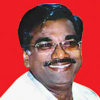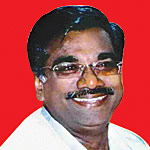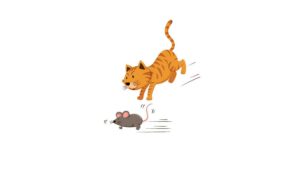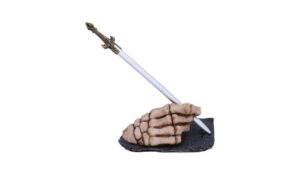Kushwant Singh in his admirable essay ‘On Being a Very Old Man’ writes: “Guru Nanak described what happens to a person who lives into his nineties. In a hymn in Raga Maajh, he says the first ten years of a man’s life are spent in childhood, the next ten growing up. At thirty he blossoms into a handsome youth, at forty he is a man. At fifty he starts feeling weak, at sixty he feels old; at seventy he feels the weakening of his senses, at eighty he is incapable of any work and at ninety he keeps lying down and does not understand the reason for his weakness.”
Shakespeare has said almost the same in different words. He divides man’s life into seven – the mewling and puking infant, the whining school boy, the lover sighing like furnace, the soldier seeking the bubble reputation, the justice with eyes severe, the spectacled lean old man in a slippered pantaloon, and then the one with second childishness. As octogenarians grow up to be centenarians and super centenarians they live the seventh stage of life – sans teeth, sans eyes, sans taste, sans everything. Senility creeps in and that’s the time the world tells you, you are living too long and making a nuisance of yourself.
After seventy, dear reader, do not think of history. Future, though very short, is more important than the long past. Medical pamphlets say that once we reach the age of seventy, we become as energetic and enthusiastic as a forty year old – an old man in a young man’s shoes. You may agree or disagree. You have every right to it. Freedom of speech. But I am sure nobody would disagree with the not too famous verse:
It’s sad for a girl to reach the age
Where men consider her charmless.
But it’s worse for a man to attain the age
Where the girls consider him harmless.
Well said! When people reach seventy, neither are they charmless nor harmless. One need not raise a hue and cry over this statement. If the cap fits better wear it and do it with a smile.
Seventy is the time when you are destined to walk alone. That is the time when you feel abandoned. No life partner, no friend, no neighbour would like to walk hand in hand with you. Either they are afraid of seeing you fall down during your walk, or afraid that you cannot lend them a helping hand if they stumble on a blade of grass or a tiny stone. Yet life has to go on and you have to continue to tread the lonely path. You are blessed if you need no crutch to support you, though it is better to have one at home, and you should look at it time and time again. Merely by looking at it you are sure to gain confidence, and boldly say, “I don’t need you today.” You can repeat these words every day.
I have seen several people take up work even after their retirement. Accustomed to nine to five job for more than thirty years, the fat pension too could not make them relax in their easy chairs. They would like to be on their heels till they tire out. Perhaps their physicians have advised them, “Be on your toes. Relaxing in an easy chair will only get you the visa to Hell.” Hence they manage to be on their toes till they grow up to be septuagenarians. Then they feel the weakening of their senses. Their physicians frighten them thus.
Seventy is the time when you have to listen to nobody but only to the voice within you. Its terms and conditions are laws to you, provided the voice is not stupidly negative. When you can’t understand the reason for the weakness, neither does the physician, it is better not to probe into the matter but simply ignore or forget it. Yet you can claim with Adam, a wise character in Shakespeare’s ‘As You Like It’, who boasted:
“Though I look old, yet I am strong and lusty
For in my youth I never did apply
Hot and rebellious liquors in my blood
Nor did not with unbashful forehead woo
The means of weakness and debility;
Therefore my age is as a lusty winter
Frosty, but kindly.”
There is nothing in our hands, people say. We are mere puppets and nobody has seen the string puller so far. Believe it or not, ask anyone who is alone. Their answer would invariably be ‘yes’. Was not Shakespeare right when he said, “As flies to wanton boys, are we to the gods? They kill us for their sport.” In fact, we are life characters created by them and they love to watch us play our part, sincerely and admiringly.
Stay blessed if you are already seventy and able to read my column even with fading eyesight. I am nearing seventy and what keeps me going is my writing. I have a lot of writing to do.























